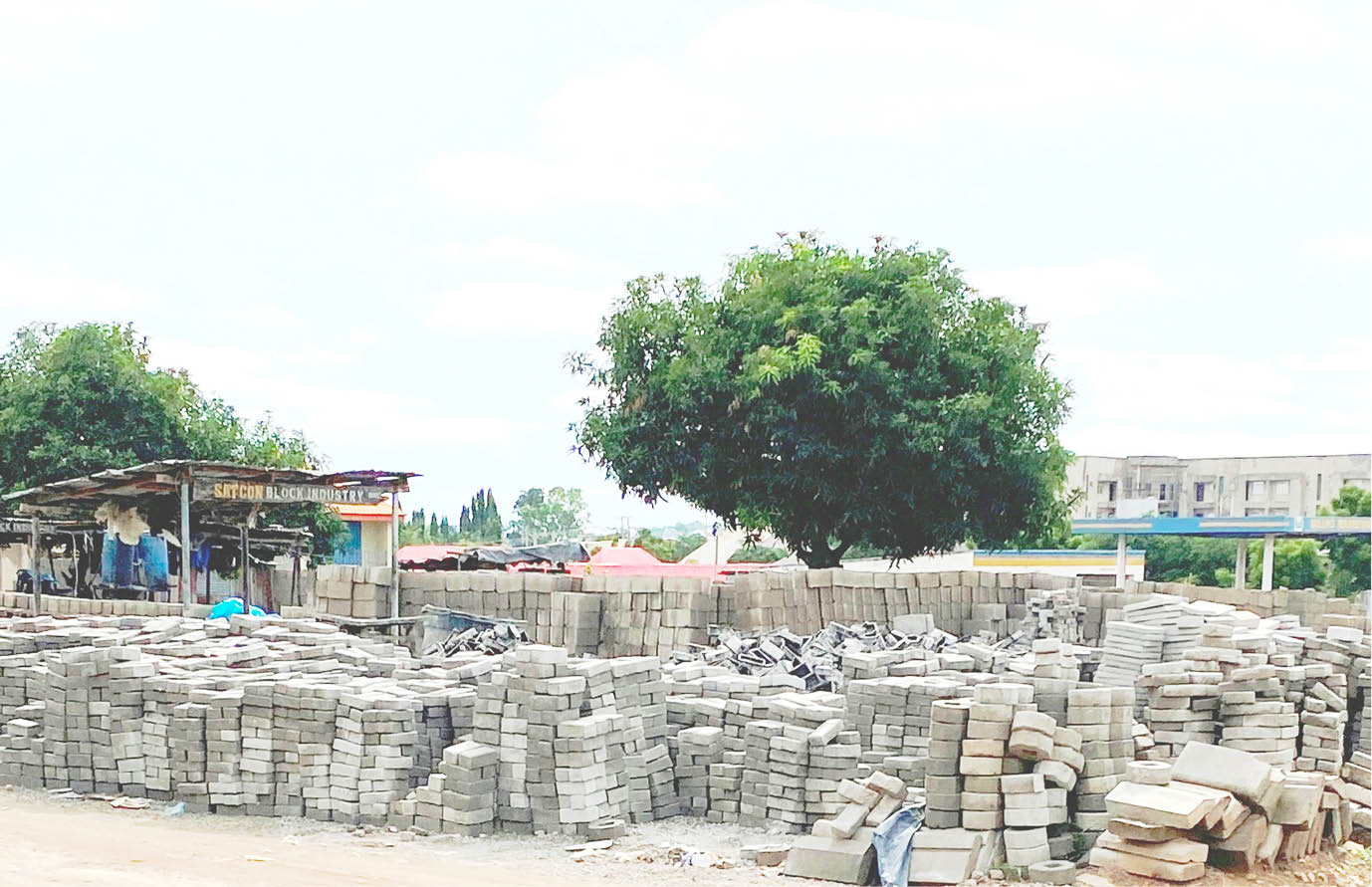For many rely on the roadside block industries for the supply of blocks for their building projects, their experiences are not many good as many suffered losses due to substandard blocks.
And many experts including the President of the Nigeria Building Institute, Mr. Kunle Awobodu said it was because the activities of the roadside bricklayers are not been regulated adding that even the Standard Organisation of Nigeria (SON) has also not been active in its enforcement of standards.
According to him, this gives rise to a lot of sharp practices by these commercial bricklayers and block industries across the whole country noting that very few observe the standard.
In Lagos, Yunus Adefowope, a building Engineer, noticed that anytime he requests for blocks to construct a building, some will be good and others will not. In fact, right inside the truck that brings in the blocks will be some broken blocks. Disturbed by this development and the type of house, which such blocks would build, he decided to start making his blocks by himself. That way, he could ascertain the quality of the blocks and the durability of the house.
Engr Adefowope’s case is peculiar as many engineers could not afford to make their blocks by themselves, rather, they had to pay a huge sum to buy a good block or pay a meagre sum to buy a substandard block which could end up broken.
A bag of cement should produce 25, 30 to 35 numbers of nine inches blocks when mixed with the appropriate sand in order to give a strong unbreakable block. But, the commercial block makers produce 40 to 45 and in worse case scenarios, 50 blocks of nine inches and sometimes 55 to 60 blocks of six inches from one 50kg cement.
Aside from the cement, the sand is another issue entirely. While some experts claim that stone dust (granite particles), sharp sand are used along with the cement to make a very good block, others said soft sand, which is a bit less expensive, is now being used to also make blocks.
“People mix the soft sand with a little sharp sand and such blocks look glossy. There are some block moulders, after producing the substandard block, they mix cement inside water and start brushing each of the blocks to make the block look strong whereas it isn’t. This practice has made it impossible to get a whole block to use as it breaks. If someone buys 100 blocks, it will be hard to get 70 whole blocks to use,” Engr Yunus complained.
After discovering the loss related to roadside blocks, Engr Yunus stopped using the British type of block and opted for the French type. He acknowledged that the holes in the British blocks (widely used in Nigeria) are too much while the French blocks are strong and the holes are not as much as the British type.
“Since I started making my blocks, I mould only 20 blocks from a 50kg cement,” he expressed.
Another building expert, Engineer Saheed Miftahudeen insisted there is a standard that block makers ought to produce with a bag of cement but they do not.
“Multinationals such as Julius Berger who are into construction produce their own blocks according to standard. When their blocks are laid together, they would not break at all. But, our own roadside blocks are carried like eggs from where they were made to the construction site. When they bring the blocks to the site, they usually add an extra five or more so that after counting, if we complain about the breakages, they will replace it.”
Engr Miftahudeen hinted, “The professional building contractors do not patronise those who mould blocks for business, we will rather produce the blocks ourselves on the site or go to the person producing, give them our specifications and negotiate.”
When roadside blocks are expensive and sold for N350 or N400 due to their quality, there will be low patronage, “because out of all the things used in constructing a building, the cheapest is blocks,” claimed Engr Miftahudeen.
Alhaji Onaolapo who has been in the building business for decades admitted that the block sold for N250 cannot be compared with that of N300. The prices of the blocks, he assured, determine the quality.
The building contractor explained that those who made substandard blocks are apprehended but they still thrive as some building contractors still patronise them. “There are some customers who want to build but do not have much money, so we buy for them according to their financial capability.
Sounding a note of warning, Engr Saheed noted the materials used in producing a block should be free of impurities such as salt. Both water and sand that will be used in making the block should be free from salt. The water should be drinkable. People do not ensure this, that is why the problem of substandard blocks keeps persisting, he insisted.
Although experts said blocks alone do not cause a building collapse, other materials such as the column matters in whether a building stands or collapses. Also “When fixtures are to be made in the house, there will be lots of holes in the process as nails will not be able to stand on the weak blocks,” Engr Adefowope said.

 Join Daily Trust WhatsApp Community For Quick Access To News and Happenings Around You.
Join Daily Trust WhatsApp Community For Quick Access To News and Happenings Around You.


